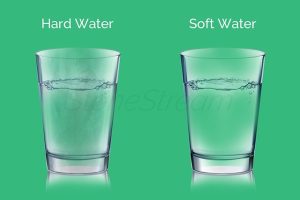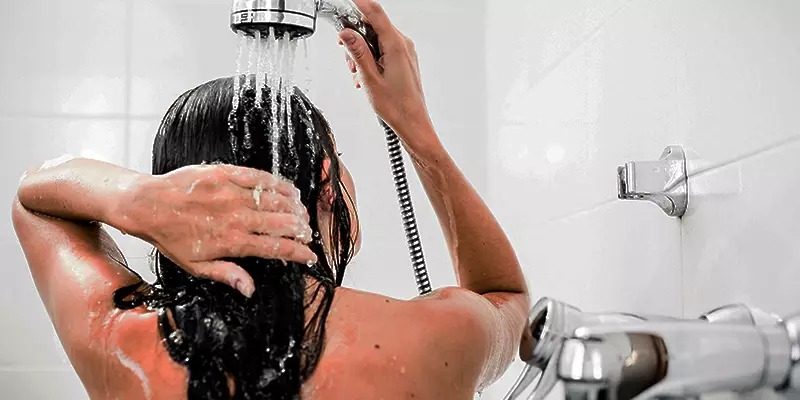To wash your face, rinse off your hair conditioner in the shower, and soak in a bath, you’ll need tap water. Water is an unavoidable component of any beauty regimen. We frequently use filtered water or purifiers to make tap water safe to drink; therefore, does this imply that drinking regular tap water is bad for our skin and hair?
Minerals and metals in water
Minerals and heavy metals enter the water through the soil. However, where you live and the infrastructure of your city can have an impact on the amount of minerals in the water. The types of industries surrounding the water infrastructure will also have an impact on the number of chemicals found in the water.
It is impossible to tell if your shower water contains a high level of minerals with the naked eye. A simple strip test is the most effective way to determine whether or not your water contains heavy metals and minerals. If you have recently moved or are traveling, you may notice that pre-existing skin conditions are mysteriously worsening. Perhaps you’ve noticed that your soaps, cleansers, and shampoos don’t lather as well as they used to when you’re in the shower. Also read Vitamin C for hair: The benefits and how to use it
The Difference Between Hard and Soft Water
Hard water is high in magnesium and calcium, whereas soft water is low in minerals and high in sodium. As a result, while hard water is more pleasant to drink, soft water allows products to foam and lather more easily. As a result, hard water may have an effect on the skin, potentially causing changes in hair and skin.
- Advertisement -
The minerals found in water are not unnecessary. We need them for strong bones and teeth, but when they sit on the surface of the skin and hair, small amounts of the minerals accumulate and build up. Some people believe their dry, squeaky skin is clean, but it’s actually hard water mineral residue.

Hard water can also dehydrate the skin and cause it to become itchy and desensitized.
Soft water, on the other hand, has the opposite effect. Instead of drying, it can be excessively hydrating or softening. Soft water contains no dissolved minerals, and because there is no mineral buildup, it leaves the skin soft.
Not every source of water is rich in minerals. The content level is determined by where you live, and some states and cities differ significantly from others, so your skin and hair may appear better or worse when on vacation or traveling.
The Effects of Tap Water on Your Skin
The most common cause of mineral-laden water is dry skin. Because of its high mineral concentration, hard water can have an effect on the skin, leaving a residue that can irritate the skin. Hard water is also known to disrupt the skin barrier and even alter pH levels. Hard water dehydrates the skin, leaving it feeling and looking dull and wrinkly.
If your skin is itchy after showering, it is most likely due to the water reacting with the ingredients and chemicals in cleansers, soaps, and exfoliators, which can cause a reaction and leave a layer of residue on the skin. Furthermore, if the skin appears to have a film on it after washing, the calcium and magnesium in the water may prevent the cleanser or soap from thoroughly cleansing the skin.
Also read Types of Serum- Best for your skin? Key ingredients



